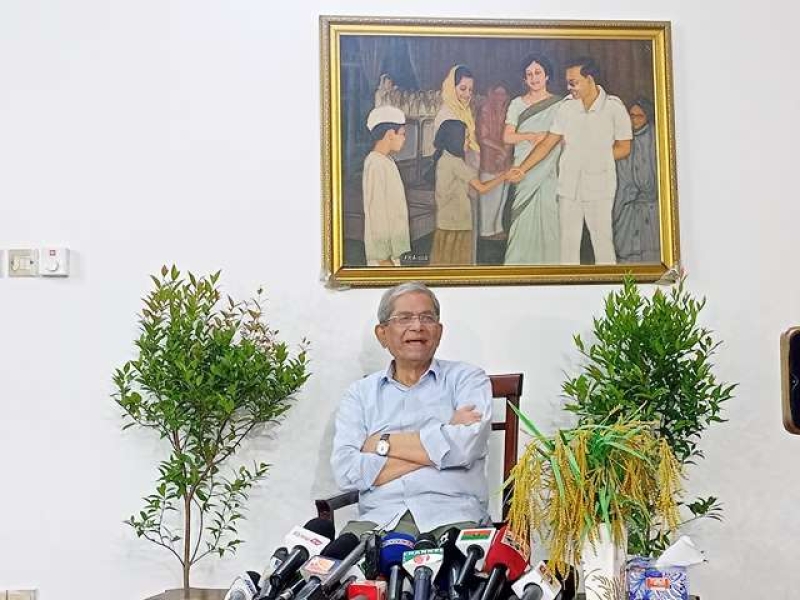- Youth participation vital to BD’s democratic future: C’wealth Group |
- Stocks retreat on week’s first trading day as turnover drops |
- Free education for girls up to honours if BNP wins: Zubaida Rahman |
- Dhaka ranks second worst in world for air pollution |
- Bangladesh stocks end week higher on upbeat mood |
Fakhrul senses conspiracy behind unrest in CHT

“The interim govt must discuss with major political parties to effectively manage the unrest in the CHT”
Dhaka, Sept 21 - BNP Secretary General Mirza Fakhrul Islam Alamgir on Saturday expressed concerns over the recent unrest in the Chittagong Hill Tracts (CHT), alleging that it may be part of a calculated plot to destabilise the interim government.
“I do not consider the recent incidents in the Chittagong Hill Tracts to be isolated ones. There are many factors involved,” he added.
While speaking with journalists at the BNP Chairperson’s Gulshan office, the BNP leader stressed the importance of the interim government engaging in discussions with major political parties to effectively manage the unrest in the CHT.
"I believe this is undoubtedly part of a strategy to destabilise the government and the political landscape of Bangladesh. The ongoing process can be viewed as an attempt to instigate a counter-revolution, undermining the benefits we have achieved through an uprising. Most importantly, there is an effort to initiate a process of depoliticisation,” he said.
Besides, Fakhrul said, the remarks made by deposed Prime Minister Sheikh Hasina while in India are having a significant impact in Bangladesh.
“Overall, the situation is not very comfortable. It's quite uncomfortable...I can say there are valid reasons for concern,” he added.
Fakhrul assumed that vested quarters may be trying to take advantage of the vacuum of a political and elected government in Bangladesh amid the unrest in Myanmar and the ongoing rebellion in India’s Manipur.
“If you consider all of these together, I believe these geopolitical incidents are very significant. But it would not be appropriate for me to comment further on the matter at this time,” he said.
The BNP leader believes that recent events following the formation of an interim government led by Dr Muhammad Yunus—including the encirclement of the Secretariat by Ansar forces, various demands from different groups, incidents of mob lynching at Dhaka and Jahangirnagar universities, and attempts to disrupt communal harmony—should not be seen as isolated incidents.
He said, the main motive behind these incidents was to destabilise the interim government.
Referring to the unrest in the Chittagong Hill Tracts, Fakhrul said, the party’s Rangamati leader Dipen Dewan expressed his concern as the government did not impose a curfew there to tackle the situation.
"After I learned about it, I informed those I know (in the government), but a curfew was not enforced. Only section 144 was imposed, but the situation could not be controlled effectively. In the meantime, the situation has escalated. This delay is causing harm," the BNP leader pointed out.
Stating that he is not blaming the interim government, Fakhrul emphasised that it is the responsibility of bureaucrats and other relevant stakeholders to provide the government with accurate advice. "That needs to happen. I believe there is a significant gap in this area, and that’s where the problem lies."
The BNP leader said, "This government is very serious... they want to accomplish a lot... they can do anything. My point is that we should cooperate. They have already taken on several significant initiatives, and we see that."
When asked about BNP's advice in this situation, he said, "Our recommendation is to engage in talks with regular political parties, particularly the major ones."
As there are agreements in place to establish peace in the CHT, Fakhrul said, the government should also engage in talks with different stakeholders to resolve the problem.-UNB

